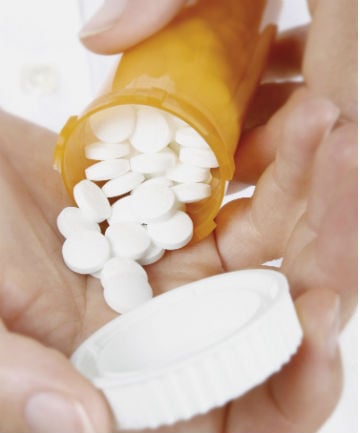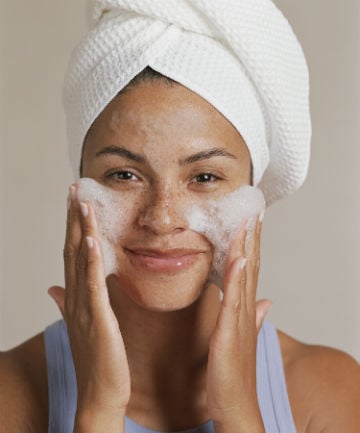Often prescribed to help address the inflammation associated with acne, oral antibiotics are one treatment you should most definitely stop taking cold turkey, says Zeichner. "Lowering doses or taking it intermittently essentially tempts bacteria on your skin, and can increase your risk of developing antibiotic resistance," he explains. As far as pregnancy is considered, he recommends stopping them at least one month before you start trying to have a baby.
Image via Getty
Image via Getty
One of the most common topical treatment ingredients, BP (as the cool kids call it) is found in everything from cleansers to spot treatments. And while it works by killing acne-causing bacteria, there's no reported resistance to benzoyl peroxide, points out Zeichner, meaning you can gradually taper off use. Regardless of the type of BP product you're using, he recommends applying it every other day, gradually getting down to just once a week. While he says it's usually not recommended for pregnant women, Gilbert points out that it may be a case-by-case basis. Your best bet (as it is for all of these)? Discuss your specific skin issues—and the products you're using or meds you're taking—with both your derm and gyno.
Image via Getty
Image via Getty
For this other common OTC acne-fighter—which works by dissolving oil and sticky skin cells that can clog pores—follow a protocol similar to that of benzoyl peroxide, gradually decreasing the frequency with which you're using it. Keep in mind that it's also not recommended during pregnancy, says Zeichner, but if you're pregnant and breaking out, don't stress. Topical clindamycin and erythromycin are thought to be safe in pregnancy, says Gilbert, and Zeichner adds that glycolic acid is OK, too.
Image via Getty
Image via Getty




